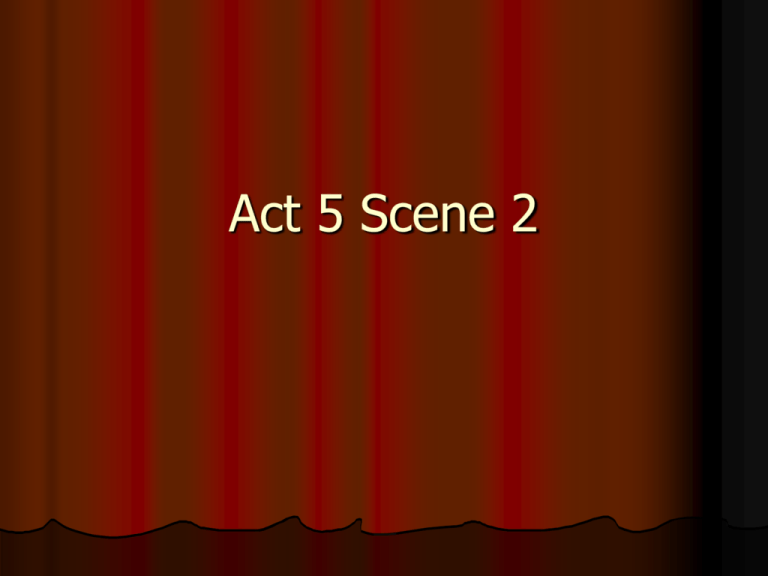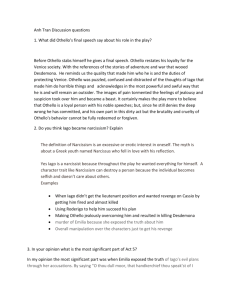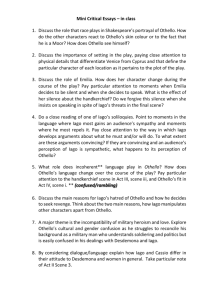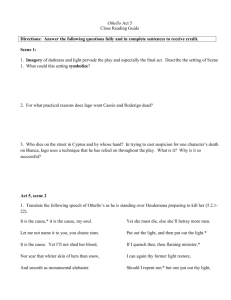Act 5 Scene 2 - HEnglish10-11
advertisement

Act 5 Scene 2 Othello’s soliloquy: “It is the cause, it is the cause, my soul” He uses ‘it’ as if he cannot even name adultery. His speech reminds the audience that she looks white but is also innocent: “that whiter skin of hers than snow and smooth as monumental alabaster” Othello is calling on darkness - “Put out the light” - again, literally and metaphorically Another euphemism he uses is “pluck’d the rose” – he loves her, she is beautiful, fragile He is torn between love and hate Desdemona repeatedly begs for her life But Othello smothers her, angrily calling her “strumpet” Emilia still cannot persuade him of D’s innocence When Iago is accused of lying all Othello can say is “O! O! O!” (197) When Othello finally realises what Iago has done he tries to attack him and wishes Iago could be punished by God: “Are there no stones in heaven but what serves for the thunder?” He feels hopeless and no longer trusts human justice He is restrained and then seems too weak to attack Iago; “I am not valiant either.” He is completely broken and says “Let it go all.” Nothing matters to him any more: bravery, honesty, honour, respect… (244) He goes to Desdemona’s dead body. He now accepts her “chastity”. Notice this line is much shorter than the standard iambic pentameter (274) He calls himself a “cursed, cursed slave”. Othello imagines his punishment in hell: “Whip me, ye devils…Blow me about in winds! Roast me in sulphur!” Again he descends into a series of painful howls: “O Desdemon! Dead Desdemon! Dead! O! O!” He recovers slightly to justify his actions: “For naught did I in hate, but all in honour” He says of Iago: “that demi-devil…hath ensnared my soul and body” Then returns to pained exclamations “O villain!”, “O fool, fool, fool!” In his final speech he reminds people that “I have done the state some service”











